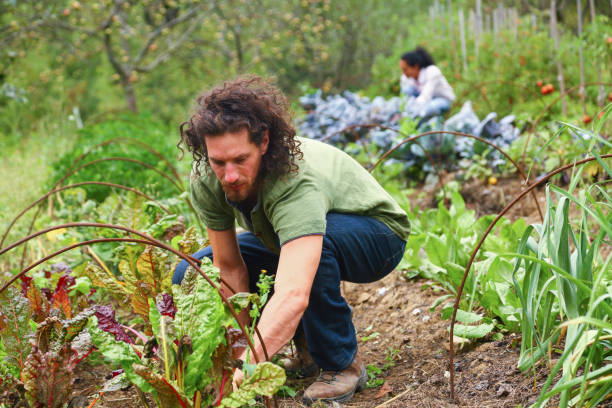The Hidden Wealth in Sustainable Agriculture Investments
Amidst the evolving landscape of global finance, a green revolution is quietly taking root. Sustainable agriculture investments are emerging as a potent force, offering investors the rare opportunity to cultivate both financial growth and environmental stewardship. This burgeoning sector is reshaping traditional notions of agricultural finance, presenting a compelling case for those seeking to diversify their portfolios while contributing to a more sustainable future.

The Financial Ecosystem of Sustainable Farming
The financial landscape of sustainable agriculture is diverse and multifaceted. It encompasses various investment vehicles, from direct land acquisition and farm management to equity stakes in agtech companies developing innovative solutions. Venture capital firms are increasingly funneling funds into startups focused on precision agriculture, vertical farming, and biotechnology. Meanwhile, impact investing funds are creating opportunities for investors to support sustainable farming practices while potentially reaping attractive returns.
Crop Yield Enhancement: A Key Driver of Returns
One of the primary attractions of sustainable agriculture investments lies in the potential for enhanced crop yields. By leveraging advanced technologies such as AI-driven soil analysis, drone-based crop monitoring, and precision irrigation systems, sustainable farms can significantly boost productivity. This increased efficiency not only translates to higher potential returns for investors but also addresses the critical need for improved food security in the face of a growing global population.
Risk Mitigation Through Diversification
Investing in sustainable agriculture offers a unique avenue for portfolio diversification. Agricultural assets typically have a low correlation with traditional financial markets, providing a hedge against stock market volatility. Moreover, the diverse nature of sustainable agriculture investments – spanning different crops, regions, and technologies – allows for risk spreading within the sector itself. This multi-layered diversification can potentially enhance overall portfolio stability and resilience.
The Role of Government Incentives and Subsidies
Governments worldwide are increasingly recognizing the importance of sustainable agriculture, leading to a surge in supportive policies and financial incentives. These can take the form of tax breaks, grants, or preferential loan terms for sustainable farming practices. For investors, this governmental support can translate into reduced operational costs and enhanced profitability. Understanding and leveraging these incentives is crucial for maximizing returns in the sustainable agriculture investment space.
Market Trends and Consumer Demand
The growing consumer preference for sustainably produced food is driving market trends in favor of sustainable agriculture. This shift in consumer behavior is reflected in the rising demand for organic, locally sourced, and environmentally friendly food products. As a result, companies and farms engaged in sustainable agriculture are well-positioned to capture market share and potentially command premium prices for their products, contributing to the sector’s investment appeal.
Challenges and Considerations for Investors
While the potential of sustainable agriculture investments is significant, it’s crucial to acknowledge the challenges. Weather-related risks, regulatory changes, and the complexities of agricultural operations can impact returns. Additionally, the long-term nature of many sustainable agriculture investments requires patience and a strategic outlook. Investors must conduct thorough due diligence, considering factors such as water availability, soil quality, and local market conditions before committing capital.
The Future Landscape of Sustainable Agriculture Finance
As we look to the future, the intersection of technology and sustainability is set to further transform agricultural finance. Emerging trends such as blockchain for supply chain transparency, AI-powered crop management systems, and innovative financial instruments tailored for sustainable agriculture are likely to create new investment opportunities. The sector’s potential to address global challenges like climate change and food security positions it as a key area of focus for forward-thinking investors.
Strategic Approaches for Sustainable Agriculture Investments
-
Diversify across different types of sustainable agriculture investments, including farmland, agtech startups, and sustainable agriculture funds
-
Consider investments in water rights and efficient irrigation technologies, as water scarcity becomes an increasingly critical issue
-
Explore opportunities in vertical farming and urban agriculture, which are gaining traction in densely populated areas
-
Look into sustainable aquaculture investments as a growing sub-sector within sustainable agriculture
-
Investigate carbon credit markets related to sustainable farming practices as a potential additional revenue stream
In conclusion, sustainable agriculture investments offer a compelling proposition for investors seeking to align their financial goals with environmental stewardship. By tapping into this growing sector, investors can potentially cultivate robust returns while contributing to a more sustainable and food-secure future. As the financial world increasingly recognizes the value of sustainability, those who plant the seeds of investment in this area today may well reap a bountiful harvest in the years to come.






